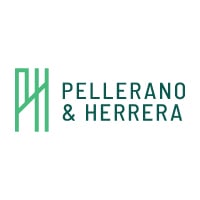

Vice president of legal and compliance | Humano Seguros



Larissa Piantini Hazoury
Vice president of legal and compliance | Humano Seguros
Team size: 11
How do you approach managing legal aspects during periods of instability or crises, and how does your legal strategy align with the broader business strategy to ensure the organisation’s resilience?
My approach to managing legal aspects during periods of instability or crisis is to focus on providing alternatives or solutions that remain practical and are tailored to the company’s current needs. It is important to understand the risks the group is exposed to under the microscope of a crisis and beyond such point as well in order to provide solutions, alternatives or proposals, that actually benefit or mitigate the risks of the company. In addition to the above, during periods of instability and crisis, communication should run smoothly and clearly between the legal team, company collaborators, external counsel, company stakeholders, board of directors and other department heads, for it is in those moments that from a legal standpoint the company should remain aligned.
My legal strategy aligns with the broader business strategy, first and foremost, by having our legal team understand said business strategy so that their work may reflect it. This is achieved by explaining to our team our company’s objectives, goals, business, and how each of their jobs impact these goals. Secondly, once the objectives are clear, our legal strategy looks to manage legal risk accordingly in collaboration with our internal client and foreseeing future legal challenges. It is important to ensure that the company is compliant with current and applicable laws and regulations or knows what areas it should put more effort to achieve efficiency and zero risk for non-compliance. Finally, our legal strategy, like our company’s strategy, looks to make decisions that add to our financial stability, sustainability and reduction in the use of paper, legal compliance, risk mitigation and effective contractual performance.
What are the main cases or transactions you have been involved in recently?
Locally, we are currently working on a transaction that involves great teamwork between our financial and legal department with careful consideration of agreements, consent and negotiations undertaken with several parties at once.
In addition, we are building and developing a corporate governance program for our group, including the drafting of policies and rules, the creating of committees and a risk department amongst other significant advances.
On an international level, we recently sold a company in Central America that was the owner of an insurance license. We carried out this negotiation in-house with the assistance of external counsel from the country of said license, especially for the requirements of sale before the authorities. In addition to the latter, we are currently in the process of negotiating another share purchase agreement, handled mostly in-house – that involves conditions precedent, shadow management and other complex clauses.
In your opinion, what are the main trends that are salient in your country currently?
In my opinion, the Dominican Republic finds itself in a particular position as it is has shown great economic growth when compared to its other Latin American counterparts. From an economic perspective foreign investment has been noticeable in the Dominican Republic across a variety of industries such as tourism, real estate, manufacturing, energy, telecommunications and even consulting. This type of investment, aside from driving economic growth and creating jobs and infrastructure, also comes with demands of compliance (regulatory, environmental, meeting certain criteria to work with foreign companies etc.). Consequently, in my opinion it is becoming a trend for companies (mid-sized and bigger ones) to take a look at their own compliance across the board and work on improving beyond legal requirements but to meet international standards. Every day there are more positions opening for internal auditors, compliance and risk officers (figures which several years ago were barely known in our market). This shows the interest of local companies in meeting international criteria. Additionally, companies are working on their corporate practices and governance, tailoring programs to their needs and even hiring digital tools and apps to help directors and other important decision-makers centralise information. While the financial sector has had a quicker start in building compliance, risk and internal audit systems the trend spreading amongst other industries is visible.
On the other hand, even companies that are not necessarily looking to work with foreign investors or meet international standards, are looking to understand and meet the legal and regulatory requirements of compliance. As countries change and tomorrow is uncertain, companies understand they need to be prepared in case a new law is passed, or an opportunity presents itself.
While great challenges to educate our local companies and build a compliant culture are still ahead of us as a country, it is undeniable the interest compliance has had in the past years. Because of this, our country has been able to evolve and improve corporate transparency and regulatory efficiency.